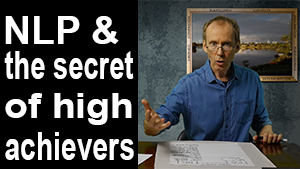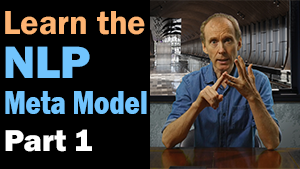
Notes from some of Osho's discourses... Phone 07 5562 5718 or send an email to book a free 20 minute telephone or skype consultation. NLP Hypnotherapy and Meditation with an Osho Zen Sannyasin. Gold Coast, Robina, Australia.
Osho: The Diamond Sutra
 |
Discourses by Osho are available in book and MP3 form. The following notes were taken from the series of discourses: THE DIAMOND SUTRA |
This is an excellent series.
#1: Buddha does not care what you can understand. The only cares what the truth
is and he does not compromise himself. Humans have to be led to the level of truth
– truth cannot be led to humans. Buddha taught a spirituality that is not
a repressive without ideology. Buddha leaves only ‘nothingness’ behind.
Buddha does not teach other worldliness.
Heaven and hell are creations of the
mind -- this world is projected onto the future. Alone = all one. In aloneness
you become one with the all and you are not lonely. Focusing your attention in
front means to watch the breath. Buddhists call it right mindfulness. Bodhisattva
means one who is ready to become a buddha but who tries to remain unenlightened
so that he can help others to become enlightened. Because the Bodhisattva is unenlightened
he still knows what it is like to be unenlightened and therefore he is able to
relate to the ordinary person whereas once enlightenment has occurred the buddha
has to relate from memory. The Catholic term recollectedness means the same as
the Buddhist term right mindfulness. Tathagata is a Buddhist word for one who
is enlightened.
#2: The no-mind does not arise out of the mind. It is discontinuous. The mind has
to be removed for the no-mind to present itself. The mind is an obstacle to the
no-mind. No-mind means that which is not mind. Buddha says: no self, no super
mind, no soul and no mind. The economy relies upon sexual repression. Because
people are not allowed to love they search for money.
#3: Bodhisattva. Giving and receiving. Buddha possibly referring to Osho and his
sannyasins. The root of obedience means ‘ a thorough listening’. In
the Jewish tradition it means to ‘ bare your ear’. Absurd is the opposite
of obedience. Absurdas in Latin means absolutely deaf. The wheel of Dharma has
stopped after 2500 years and needs to be started again.
#4: One has to start from state of not knowing, otherwise there is a reacting
out of the past. You are not the content of your memories – you are the consciousness.
This is how you can forget things. You are not the memory. Memory is just a record.
When you are trying to remember a name who is the one who is trying to remember?
Your memory is not you. You are consciousness. Memory is content. Memory is the
whole life energy of the ego. Memory is afraid of the new. To become new one needs
to disidentify with the ego. The ego is just a mechanism. The ego is afraid of
death because the ego is arbitrary. Life is being. To die in the ego is to be
born into being into God. The new is a message from God. In spite of your fear
go with the new. One needs to be passionate and intense about their meditation.
Passion evolves into compassion.
Definition of Arahat and Bodhisattva. (I
am not clear about this so you had better check it for yourself. I am not clear
what Osho means by the other shore. Is he talking about enlightenment or death?)
Two types of enlightenment. Arahat and Bodhisattva. I think some people pertain
directly to enlightenment. These are known as Arahat but they do not have the
tools to be able to help others to attain to enlightenment. While those who spent
some time as a Bodhisattva once they attain to enlightenment they are able to
help others. Down the ages people have always thought that their time/era is special.
This is just ego.
#5:
Excellent. When anything that happens is okay and all is a benediction then
one has had a taste of enlightenment. The Buddha eye is another name for the third
eye. Two eyes give us duality, the third eye allows us to see the unity of existence.
“ Jesus says that if your eyes would be like one then your whole being will
be full of light”. Make the outer and inner one. Make the duality one. Love
and hate are one, day and night are one, life and death are one, bliss and misery
are one, and so on.
The eight barriers to wisdom. A meditator who crosses
all of these barriers attains to the status of Bodhisattvahood. 1. No perception
of self. No ego. No being: each moment we change, life is a process. No soul:
no supra force abiding inside of you. No person: the personality dies with the
body. 2. No perception of remaining the same. Being. Each moment we are different.
3. No perception of soul or a supreme personality. 4. No idea of a personality
that migrates from body to body. 5. Dharma. Neither the positive element nor the
negative element remains. 6. No perception of no-dharma. 7. No perception. 8.
No non-perception. If you come across anything on the inside then you are still
outside of your self. The seer only exists with the seen. The observer is the
observed. When content disappears the container disappears. On Gopi Krishna and
blocked kundalini energy. The purpose of meditation is to help us to drop everything.
Once we attain to this emptiness/nothingness then we need to drop the emptiness.
#6: Buddhism is the only tradition in which it is rare for a Bodhisattva to go
mad. It is quite common for a Bodhisattva to go mad in Sufism and Hinduism. The
bliss can be just too much. In Christianity ordinary people are worshipped as
saints while those who attain to enlightenment go mad and put in asylums. Hence
meditators need preparation and training for enlightenment.
On meat eating
and vegetarianism. Some vegetarians may be repressed meat eaters. Osho’s
objection to meat eating is based solely on the grounds of aesthetics.
#7: Being and non being, nothingness. Attention gives one the sense of being loved.
Love brings attention but attention does not bring love. St Francis of Assisi
died singing.
#8: Up until now the West has been extroverted, objective and scientific – produced
great scientists. The East has been introverted, subjective and meditative –
produced great mystics. Jesus says, “The Kingdom of God is within you!”
But Christians tend to focus on heaven as if it is outside of themselves.
About
the subtle desires we get for a little reward at the end of the day in the form
of a beer, wine, cigarette, chocolate, drug, etc. The mechanism is something like:
“ If I get this then I can be happy.” A cause and effect belief. We
set conditions on happiness. What conditions need to be met in order to fulfil
a value or emotional state? When I get ‘x’ then I will have or feel
‘y’. But once you attain the goal the condition is removed. When the
goal is achieved there is a relaxation but the desire arises again for something
new. The bigger the goal, the more effort that goes into attaining it, the more
value we attach to it, the greater the tension in the mind and body, but once
we attain it the feeling of success is short lived and there is still something
missing. Happiness needs no conditions, it is natural. Set very small conditions
on fulfilling your values.
#9: A Master such as Buddha makes you aware of your potential. Have courage to face
life and to accept the challenges that life offers you.
#10: Words are used to describe an experience. The word is not the thing. A word has
a different meaning for each person and for each context. Alone = all one. Differences
between aloneness and loneliness. The distinctions of aloneness. Religion –
to know less and less about more and more. When overwhelmed introvert’s cry
and extrovert’s laugh. Transformation occurs when you reach the extreme.
Laughter turns to tears or the tears turn to laughter. Meditation – introversion.
Love –laughter.
#11: Just watch things as they are without interfering, making an opinion or judging.
For example if you have a headache make a note of it but don't try and change
it either way. Try and follow the energy back to the root cause. For example:
headache – anger – ego – nothingness. The Buddhists call the silence
suchness. Don't be concerned with the past, just take note when you become conscious
of something then follow the energy back to the root cause. This may be achieved
with a regression technique, following a strategy backwards, dropping through
gestalts or following the core outcome chain. On choicelessness. Buddha uses the
metaphor of an oil lamp for the mind. Oil is the desire that fuels the lamp. Don’t
try and stop your thoughts directly, don’t fight with the problem but go
for the root cause of the thinking – the desire – the energy that fuels
the mind. Buddha says the mind is like a lightening flash – it is momentary,
don’t cling to it. The word is not the thing. Don’t be too concerned
with words, they are just containers, throw them away.
Share With Friends
Subscribe to Newsletter
| DISCUSSION GROUPS | |
|---|---|
 |
|
| NLP Future Selfing | |
| NLP, Hypnotherapy & Meditation | |
| NLP Peace Mapping | |
| Facebook Discussion Group | |










